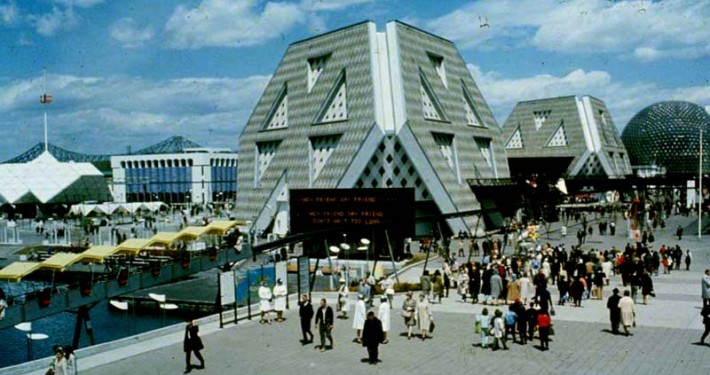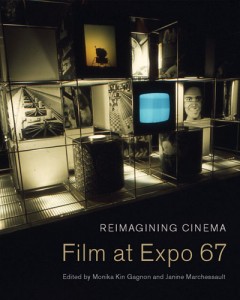Cinema Expo 67 engages in fundamental research and contextualization of the most important films to have disappeared from the Canadian film canon. These seven multi-screen productions challenged both the cinema production technology of the day, modes of screening, audience reception as well as the received wisdom as to what cinema was or could be. Roman Kroitor, Colin Low and Tom Daly’s Labyrinth Pavilion – a five story building designed around two multi-screen productions – has been described as the “last, and most complete, statement of the collective humanist ethos of the NFB’s Unit B” (Morris). Michel Brault’s Settlement and Conflict and Charles Gagnon’s The Eighth Day were major works by two of the most gifted Canadian filmmakers of the day. Graeme Ferguson’s Polar Life and Christopher Chapman’s A Place to Stand demonstrated the potential for large screen cinema exposition that Ferguson and Kroitor would shortly thereafter develop as IMAX. Two other multi-screen productions – Canada 67 and Francis Thompson and Alexander Hammid’s We Are Young – contributed to a growing body of alternative cinema widely seen as the future of the medium (Youngblood).
http://www.mqup.ca/reimagining-cinema-products-9780773544512.php?page_id=73&
http://www.cinematheque.qc.ca/en/programming/exhibitions/la-vie-polaire-polar-life-cinemaexpo67
http://www.concordia.ca/cunews/main/stories/2014/10/28/expo-67-the-birthplaceofmodernmoviegoing.html
http://mcluhan2011.eu/janine-marchessault/
Janine Marchessault: McLuhan's Fair - Expo '67 at Counterblast video



